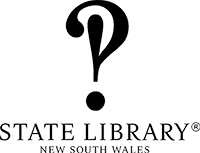FL14369585
Facsimile
Transcription
the materials for the end of term breaking-up night feasts. He remembered Samuel Marsden
"...at about seventy years of age, short and stout, clean-shaved, and rather bald, with white hair. He wore a broad-brimmed beaver hat, and drove himself aboutParramatta in one of the old-fashioned grigs, with a splendid horse. He had two rings placed in the splashboard, to pass the reigns, for he would sometimes drive home without them in his hands, in the forgetfulness of old age. His horse, however, would always stop safely at the front door of the parsonage, quite the same as if driven there."
He described some aspects of the King's School in his In Old Australia:
"I wish I could present my readers with some portraits of the boys who came to the school. Knickerbockers were unknown. Short jackets were worn and often the little fellows had the jacket buttoned up and the trousers, or 'pnataloons', as Mrs Forrest called them, buttoned over it: the suit generally made of blue cloth. One boy hada jacket and trousers all in one, made of brown holland, with buttons only at the back of the neck and waist. This suit gave him a cool appearance on a hot summer's day and Parramatta was as hot a place as I was ever in.
Some of the boys wore large pinafores. At nine years old, I used to wear, over my long-trousered cloth suit, a brown holland pinafore, down to my ankles nearly. All we pinafore-wearing boys had girls' names given us, by way of nickname. The caps worn were of a peculiar type, having small learther peaks and large crowns with a cane round them, the pleats were drawn into the centre to a button. After a time, these canes would be taken out, and then the caps used to hang loose at the side of the head. One boy, John Antill, who at once received the nickname of "Magpie", came with a home-made cap, the upright made of square pieces of cloth -black, white, and red, with an immense cane top, no peakr, and a ribbon at one side. Older lads wore what were called 'black billies' - the usua; beaver or silk hats.
---
School opened at seven a.m. and closed at nine p.m. but morning, noon and night, we had to learn the everlasting Eton Latin grammar - parrot-like. As we learnt the Church Catechism. Of course there were some boys that read the Greek and Latin Classics, but as I had not advanced so far I must confine my reminiscences to outside events.
We paid only £28 per annum, so we could not be expected to fare as well as schoolboys of the present day. For breakfast and tea we had merely dry bread, with tea in large basins containing about a quart apiece. Green tea alone was then used in the colony. The quantity allotted for our tea was very scant, but a liberal supply of brown sugar, about the colour of coffee, and a dash of milk, made it into a kind of syrup. Two or three basinfuls were considered necessary to wash down the dy bread, and the consequence was that the small boys became like podgy calves. For dinner we had roast beef one day and boiled the next, the boiled beefe quite fresh, never corned or salted, sometimes mutton and 'duff', that is suet puddings - with lumps of suet an inch in diameter and not very nice either. I have never liked duff since. We never tasted butter, useless by means of a shilling tip to the housekeeper, when one might find some buttered
Notes and Questions
Nobody has written a note for this page yet
Please sign in to write a note for this page


